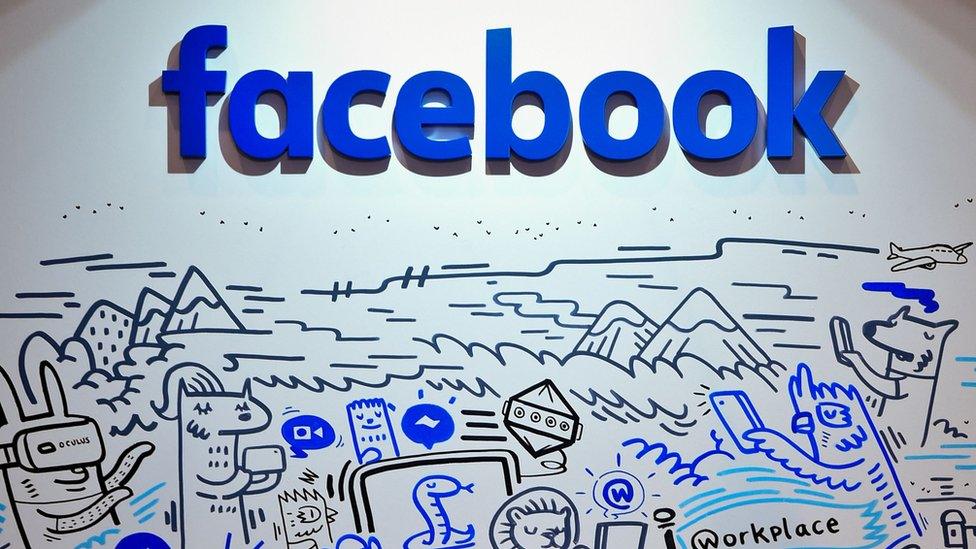The problem with fake news on Facebook - and how to spot it
- Published

It looks like Facebook's problem with fake news has kicked off a war inside the tech firm.
Buzzfeed News is reporting, external that "more than dozens" of staff have created an unofficial task force to sort out the problem.
The key issue is that it's not always immediately obvious which news isn't real.
"It's difficult for people scrolling through Facebook quickly, often on small mobile screens, to get a sense of what's real and what isn't," says Claire Wardle, from the Tow Center for Digital Journalism.
"It's not surprising that Facebook is struggling more with fake news, as there's more of it being produced," she adds.
Earlier this week, Facebook said it was going to do more to tackle the problem of made-up news, some of it intended as comedy, which people then shared.
Facebook founder Mark Zuckerberg said "only a very small amount is fake news and hoaxes" and denied Facebook played a role in Donald Trump's surprise election victory. "The idea that fake news on Facebook influenced the election in any way is a pretty crazy idea," he said.
Here are some examples of fake or spoof news that you may have shared
A spoof response to a story about Lego pulling its adverts from the Daily Mail...

One of the main news sites publishing spoof stories says it's actually providing a service.
"The world in 2016 is a messed-up place in a number of ways, and for many people carefully-constructed fake news is actually preferable to some of the utter garbage that is churned out by the mainstream news websites," Southend News Network wrote in an open letter, external.
Its "About" section states that it has "no real aims or objectives in mind other than to add a satirical/spoof-like touch to issues that people are passionate about."
You probably spotted this one was not real news...
Not least because the author is "Doug Trench".

Southend News Network says it's catering to a market that actively wants fake news.
"What we are saying is that any decision that you make has to take into account that for every user who hates fake news websites, there is someone else who is so disillusioned with the whole stinking mess, that they use these as an escape and a bit of a giggle."
We sincerely doubt Canada's leader would give this scoop to the Rochdale Herald...

And did you or your friends share this Donald Trump quote from 1998? It's fake

Spotting fake news may seem obvious - if it seems a little bit unbelievable, it probably is.
Satirical sites like The Rochdale Herald, the Suffolk Gazette and the Daily Mash often mimic real ones and look the same.
But a quick check of bylines - the writer's name - can swiftly tell you it's all meant as a joke. The above examples are penned by a Doug Trench and a Sebastian Wiesel.
In a disclaimer, another site - the Suffolk Advertiser - asks for stories to be submitted but "nothing libellous, abusive, racist, sexist, generally offensive" and it "must be remotely funny and not get us into trouble".
Facebook says it's going to announce how it plans to differentiate real news from fake ones soon.
It says that only 1% of news shares on Facebook are fake.
Find us on Instagram at BBCNewsbeat, external and follow us on Snapchat, search for bbc_newsbeat